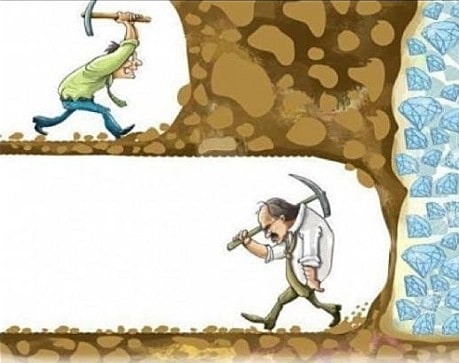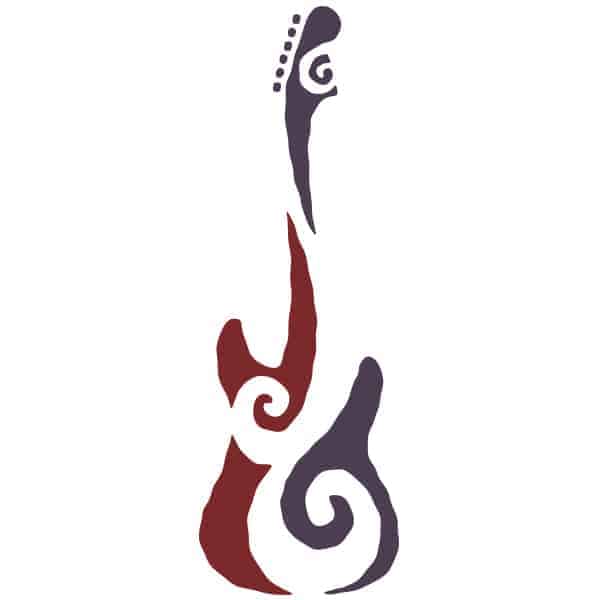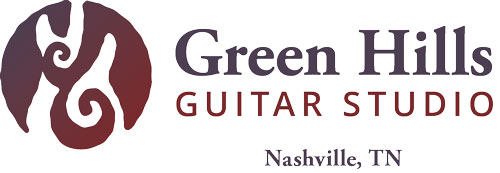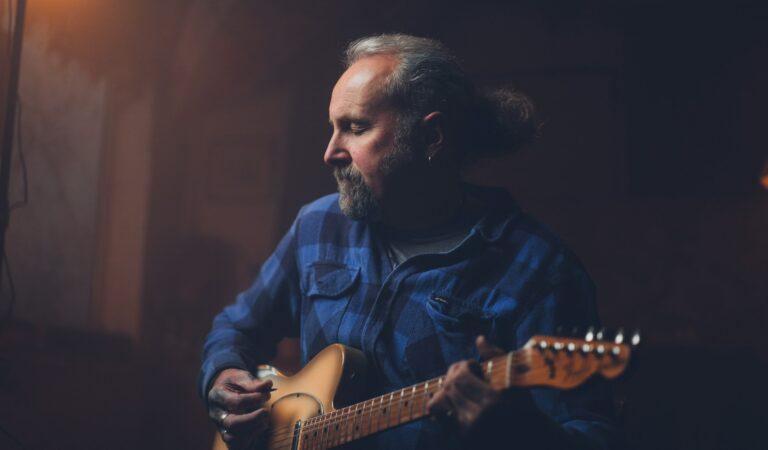Is it Time to Find a New Process for Your Creativity and Songwriting?
Over the weekend, I hosted a 2-hour workshop on songwriting. The workshop’s focus was to help people work on the areas where they feel stuck. I asked everyone to bring in something they were either currently working on or had been working on for some time and felt they had creatively hit a wall. The goal was to get everybody back into the process as quickly as possible and help them see the options they had where they felt stuck, creatively exhausted, and frustrated.
The songwriting workshop wasn’t about a performance or a critique, it was about process and being right there in it, up close. We often approach situations the same way every time, which means we keep strengthening and reinforcing that same approach, the neurological groove, and habit. We get the same frustrations of landing in the same place with our creativity. And this feeling is really brutal.
I would not say I am some pie-in-the-sky optimist or hope-aholic. Having so many of those past frustrations and difficulties with my own process, I have learned a lot of useful tools and approaches that honestly make me feel excited to lean into those challenging times. I tend to view situations, whether music or life related, like this:

In private songwriting lessons, getting buy-in from the individual is easier because it’s just the two of us. There is already a level of trust and less mental self-judging or internal critique going on. In this workshop, I was asking a group of people to come together that didn’t know each other, and most of them didn’t know me yet. It was extremely courageous of them, and they showed up ready to dive in.
Treat it like it’s important. Take note of what you are good at and, more importantly, what you’re not.
We all have our strengths and our weaknesses, our interests and the things that don’t feel fun to do (for whatever reason, but it’s usually fear based…more on that later). The first topic I started with was being more self-sufficient. Self-sufficiency builds confidence because it requires gaining more knowledge and the gaining of more skills. Plus, with the ever-evolving music industry coupled with rapid technological changes, the downward pressure on creators is substantial. You really have to be more self-sufficient and take responsibility for your music. That is the reality.
There were some people in the class that wrote lyrics and poetry, one that was a singer that started taking voice lessons and guitar lessons within the last year and wanted to write more, and a few that played guitar well but were getting stuck on presenting their ideas and finishing songs.
Every person in the workshop exhibited and shared a real passion, interest, and love for songwriting and creating. It was really inspiring. I could tell everybody had worked hard, sacrificed, and put in the time. Each person also shared their frustrations with feeling creatively blocked.
The first thing I suggested was about tapping into their obvious passion, commitment and willingness to work. I suggested a slight tweak to their routine:
It’s not about being an expert. It’s not about being great at everything. It’s about gaining some proficiency and broadening your skills and tools.
If you write lyrics, learn basic guitar or piano skills, and sing daily. Commit to guitar, piano, and voice lessons to get there faster. Have a pro help you get a solid foundation. More skill means more confidence and ability. You will experience music differently, and you will have more tools!
If you are pretty decent at guitar or piano, work on your melody writing skills, singing, and lyric writing. Study songwriters like you studied guitar/piano. Read poetry, read literature, and study songs from the vantage point of lyrics and melody, isolated and separate from the song…and each other. Write out the form and structure of the songs you learn. Learn songs by ear. More skill means more confidence and ability. You will experience music differently, and you will have more tools!
Basically, put yourself in a new position and study music. Learning something new reminds you how hard you’ve worked to be good at the other thing. Plus, learning something new requires different energy and attention. You get an immediate return on your effort, and you pretty quickly start to see how this new skill will help. This builds confidence, enthusiasm, and excitement.
Music theory is not a creativity crushing bogey man, it is a tool! Learn it! Use it!
It isn’t easy to move forward if you don’t know what key you’re in, what your options are and how to tonicize or modulate. A basic understanding of harmony and form/structure will save you so much heartache and frustration. You understand the impact of a melody more if you understand how and why it relates to the underlying harmony. Structurally, what is the setup of the chorus? Why and how do great choruses feel so good and seem to be right?! Free Falling by Tom Petty, for example!
I call it a game of tension and resolve. What is going on lyrically, melodically, and harmonically right before the chorus? What is the band doing? What is the arrangement? You see, everyone is on board and helping build and set up the tension and then the release…the band, the producer, the engineer, the backup singers, the janitor, and the security guard. Everyone is working to craft the song and dial in those moments of tension and resolve.
It’s everywhere: in art, architecture, literature and drama, religion, and mythology. Keep in mind some folks like to take you out there and not resolve the way you want or expect. When you develop more skills, you understand more of the game and how it’s being played.
Have Words to Burn!
Often times when I’m working with songwriters, and they start getting stuck by thinking too much or holding back, I write a line and pass them the paper and have them write the next one. We go back and forth. When they pause, I yell, “Hurry! Write! No thinking!” People are afraid to write very quickly. They are afraid it may not make sense or come out wrong and not rhyme, be too long, blah, blah, blah. It’s about staying in the process! You can’t fix rhyme schemes, edit, or sculpt a song if you have nothing to work with except your anxiety and a blank piece of paper.
I also ask people to write 4 or 5 verses if they only need two more. It’s good practice. Plus, having some really good lines or clarity in those extra verses is not uncommon. Why? Because you’re in a groove, the pressure is off. You know you will have more than you need. Then, you take some of those great lines and put them in another verse to strengthen them.
You’re a vulture! A scavenger of your own writing, subconscious, and creativity. Doesn’t it feel great?! Where’s all this stuff coming from? Not from the little judge and jury that lives in your head and constantly criticizes, I promise you that!
The idea, the inspiration, is a gift. Who knows where it comes from? Acknowledge it as a gift and get moving. The rest is just working, so get to work!
Take stock of what you have and let it inform your next move. Think structurally. Do you have a great hook or chorus? Then, you need some verses! If you know you have a first verse, what do you need? A chorus! A few more verses. Verses need words and a storyline. Free write, and don’t worry about rhyme scheme, length, and all of that! Don’t even worry about it making sense. You need the story, the thread.
A word on bridges: I bust ’em! I call them out when people try to sell me a bridge that is just a confusing or short verse. Don’t just jam a section on there and call it a bridge.
If you try to edit all the time as you are writing, if you are so concerned about spitting out another verse, you will freeze and stall. Write a lot and whittle it down later. JUST GET WRITING! Write quickly, crazily, and fearlessly. There’s a lot of good stuff in the subconscious.
Bob Dylan said ‘Like A Rolling Stone, ‘ which started out as 14 pages of vomit he just had to get out of his head as fast as possible. Just sitting there and thinking about it won’t get you there. Thinking will get you stuck. Write like a man (or woman) running to water with his head on fire!
Search for Inspiration
Another really important item is an inspiration. When it’s there and firing, doesn’t it feel good?! When it’s not, it’s so torturous for people. That’s when you become like a hunter. You go looking. Pay attention, read, listen, learn new songs and study other writers. Let the universe know you are serious, ready, and committed.
Sitting there like a lump and thinking it’s going to “show up” is pretty unrealistic and lame. A part of the creative process is soaking things up and collecting. When I feel wrung out, I know I need to shift my approach and start soaking up again. I still enjoy making a pot of coffee and figuring out songs by my favorite artists, learning guitar solos, and jamming to records. I don’t stay uninspired for long! I go looking!
When I am working with songwriters that are writing for a project, there comes a point where they start to worry about what the recording will sound like, whether it will make sense, are the songs making sense together, are the songs too slow, what if this, what if that.
Anxiety. Self-doubt. Fear. Comparisons and judgment. That’s a good way to get stuck. I tell people what they need to worry about is having a pile of songs. That’s their job, write songs. The project always reveals itself. The songs emerge, and the threads come together.
If you get down to the last two songs and the producer says, “Hey, I think we need an uptempo song to round this out,” you don’t panic, and you don’t write a ballad. You know what’s needed, and you write it. There is so much you can’t worry about on the front end. You need to write and keep writing. You are honing your craft.
An Example of Abundance
By the time Lennon & McCartney met up with George Martin, they had written quite a few songs. So when they played a bunch for him, and he said, “I like that one, this one, not these so much, that one,” the boys didn’t run and cry and freak out. They said, “Ah, ok! We know what he wants more of, what he’s looking for! Let’s go!” And they wrote.
They had developed their skill. They had studied—a lot. They knew all those Elvis songs, all the Buddy Holly and Little Richard songs. Jerry Lee, Chuck Berry, and so on. And they wrote—a lot. They had piles of songs.
Study the writers you love, the artists and bands that matter to you. That’s where the inspiration lives, where the compass is hidden and where the skills are on full display for you to learn. Bob Dylan said, “Everything you need to know is in the music you love.”
What are you waiting for?








